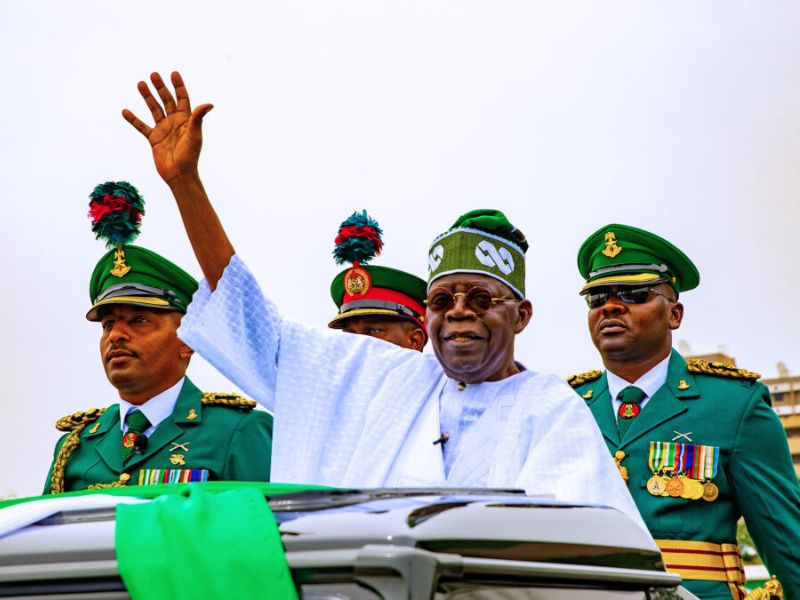Two Years in, Nigeria’s Tinubu Has Done Little to Stem Widespread Violence

Nigeria (International Christian Concern) — This week marks two years since President Bola Tinubu took office, elected on a platform of order and security. In the time since, research by Amnesty International indicates that at least 10,217 people have been killed in widespread and escalating attacks that are largely concentrated in the country’s fractious Middle Belt region.
Nigeria’s Middle Belt is where the country’s Muslim-majority north and Christian-majority south meet and has been the site of significant religiously motivated bloodshed in recent years, driven in large part by Islamist insurgents that brutally target Christian communities.
Christian-Majority Benue and Plateau States Worst Hit
Benue state has been the worst hit, with at least 6,896 deaths in the past two years. Benue is predominantly Christian, with some estimates putting the concentration of Christians as high as 98%. Accessible to Islamist terror groups headquartered in the north, Christian communities in Benue are a favorite target.
More than 200 Benue villages have been destroyed in the last two years, according to Amnesty International research, and every one of the state’s 23 local government areas suffered at least one attack. More than 450,000 people have been internally displaced in Benue since Tinubu took power in 2023.
In Plateau, also a Christian-majority area, gunmen attacked 167 separate communities in the last two years, killing at least 2,630 and displacing 65,000 more. International Christian Concern (ICC) has worked for years in many of the affected communities, helping to cover medical bills after attacks and supporting farmers as they work to regrow sustainable crops.
In many incidents, attackers ruin wells, burn down schools and medical facilities, and destroy churches to ensure that any survivors have no way to support themselves. In nearly every case, women and children are killed alongside male villagers.
Tinubu Administration Marked by Deepening Divides
Tinubu did not create the religious tensions playing out across the Middle Belt — that started long before his time in office. However, he only deepened the country’s religious divide when he abandoned the long-standing tradition of presidential candidates choosing a running mate from a different faith.
Rather than choose a prominent Christian, as tradition would dictate, he chose Kashim Shettima, a fellow Muslim and former governor of Borno state, to join him on the All Progressives Congress (APC) ticket. His choice sparked harsh criticism among non-Muslim leaders who felt that the decision marginalized the interests of Christians and other religious groups.
Tinubu was elected in the tightest presidential race since Nigeria’s return to democracy in 1999. Complicating matters, only 27% of eligible voters participated in the election, meaning that Tinubu’s 37% of the vote netted him just 9.3% of eligible voters — hardly a compelling electoral mandate in a country already struggling to find common political ground.
Long History of Violence
Nigeria has dealt with significant internal violence for years, mostly at the hands of terrorist groups and militant Fulani herdsmen. Tens of thousands have been killed or abducted by these two groups, and hundreds of thousands have been internally displaced.
The most prominent of these militant groups is Boko Haram, which was founded as an Islamic school in 2002. From there, Boko Haram quickly developed an agenda of radical Islamism and, in 2009, began a campaign of violence that continues to this day. While the group has splintered and changed leaders several times since, today it calls itself Jama’tu Ahlis Sunna Lidda’awati wal-Jihad (JAS). The group has maintained its violent tendencies and has a “priority scale” of targets, with Christians at the top, followed by the government and Muslims who have not joined the group.
In addition to organized terrorist groups like Boko Haram, many communities have become radicalized over time and collectively contribute significantly to the total death toll in the country. Often triggered by other issues like conflicts over limited grazing or water resources, they quickly take on a religious tone that leads to violence against religious leaders, houses of worship, and entire communities known for their religious affiliation.
According to one analyst of local militancy in Nigeria, Islamic State West Africa Province (ISWAP) is funding Fulani militants in their attacks on Christian farmers, an ongoing conflict that ISWAP views as “another opportunity to target Christians, who they view as a key obstacle to establishing an Islamic State in West Africa.” This insertion of terrorist funding further underscores the religious undertones of even local conflicts and highlights the need to address the element of religious persecution at every level of violence in Nigeria.
Meanwhile, the government — under Christian president Goodluck Jonathan, Muslim president Muhammadu Buhari, and now Tinubu — has long failed to provide any kind of effective response to the violence or adequate protection to vulnerable communities regularly targeted for their religion, such as in southern Kaduna state where certain Christian communities have been attacked by Muslim extremists repeatedly throughout the years.
If Tinubu is serious about quelling the violence in Nigeria, one factor that he must address is religion. Though not the only factor at play — lack of economic opportunity is another — it is a major one, and one that he crucially cannot afford to ignore.
Whether through programs to counter religious extremism or through special efforts to provide security for vulnerable Christian communities in violence-torn areas, Tinubu can make significant strides toward peace only if he is willing the address the religious tensions at play in his country.
To read more news stories, visit the ICC Newsroom. For interviews, please email [email protected]. To support ICC’s work around the world, please give to our Where Most Needed Fund.
